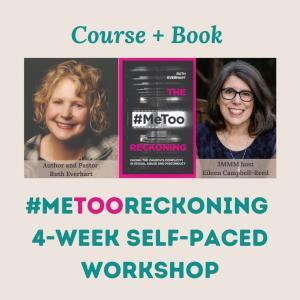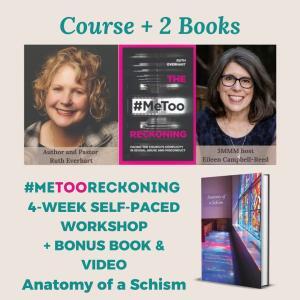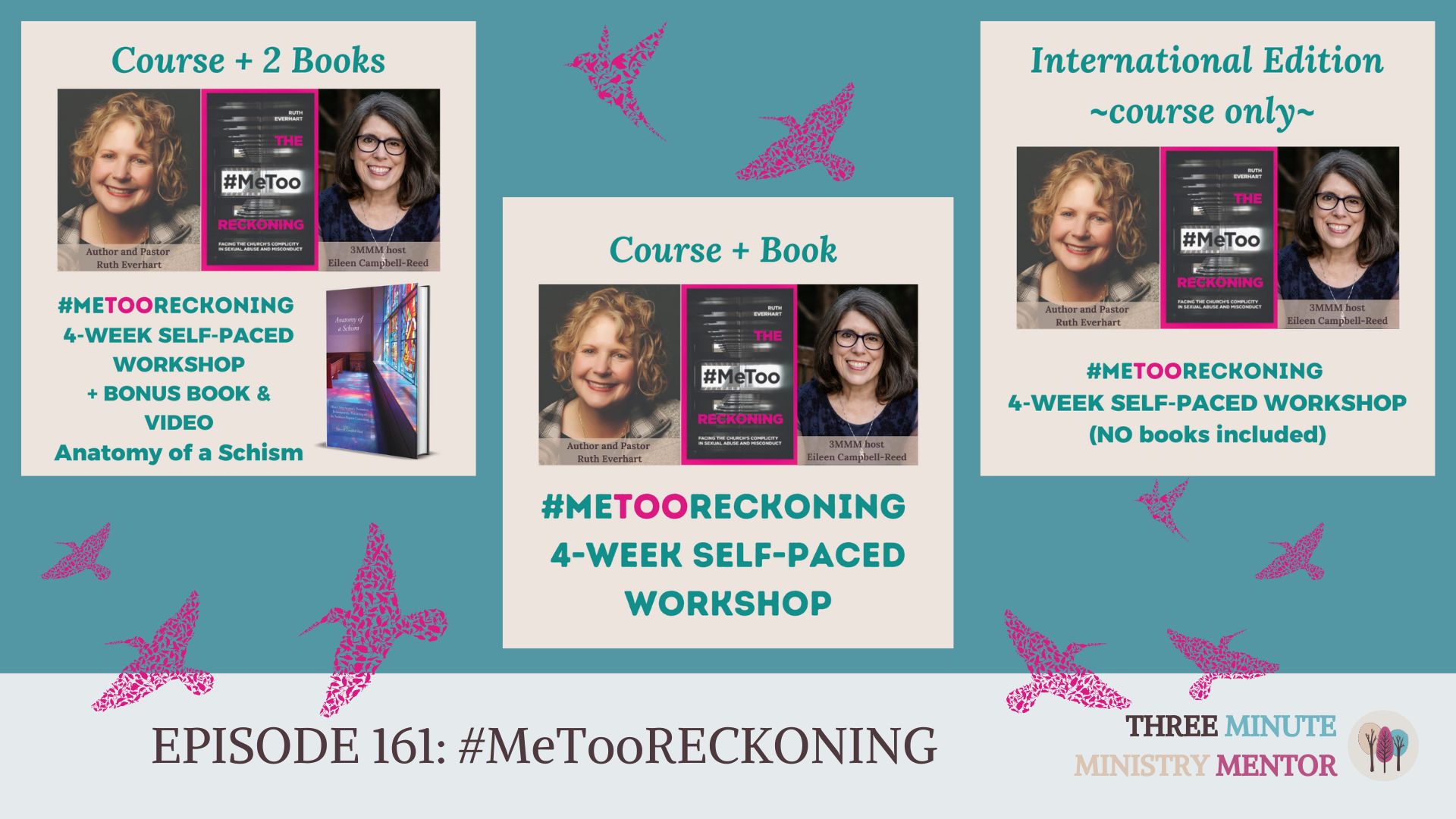The church in the United States is in the throes of a #MeTooReckoning.
A public crisis has been unfolding for more than two decades. However, this summer we saw a major uptick in victims speaking out, press coverage, legal actions, and denominational meetings focused on sexual abuse, misconduct, harassment, and trauma.
These realities are not new. The church’s long-standing repression of healthy sexual expression, and lack of equality for all people, have conspired to create dangerous conditions. Those conditions in churches give leaders in power, most often men, both greater access and lesser accountability to people under their care.
One horrific result is that some people, whom the church has construed as less powerful (often women, teens, and children), are especially vulnerable to the people who are supposed to be leaders. One result of this structure of relationships (a.k.a. patriarchal structures) is that church leaders and “fathers in charge” have committed harassment, misconduct, rape, and chronic sexual abuse. The most devastating result is deeply ingrained, long-term, personal and collective trauma. Instead of care, harm has been done in the name of religion.

And the very same structures of the church work to make it hard to confront people in power, easier to disbelieve vulnerable people, and to protect and believe the very people who already have power.
These are the conditions that allowed the crisis. But a reckoning is underway.
Abuse can happen anytime or place
And let’s be clear. Conservative or evangelical or fundamentalist churches are not the only places where the conditions for abuse are possible. Even churches with egalitarian commitments, and equalitarian values, women pastors, and full inclusion of LGBTQIA+ folx, can still be places where abuse happens. Fortunately denominations and churches that hold values of equality and positive sexuality, are more likely to put into place safe church policies and adopt guidelines to support victims and hold abusers accountable. Yet these basic values and policies are no guarantee of safety, either.
Judith Herman, author of Trauma and Recovery, reminds us that public notice of abuse and response to trauma comes in cycles. We are in a current moment when victims and survivors of abuse everywhere can’t say #MeToo and stand a greater chance of being believed. Walls of denial about abuse in the church remain stubbornly in place, and hard to topple. Roman Catholic survivors marked 20 years since “the tsunami of pent-up pain, anger and human suffering … unleashed” by early reports in the Boston Globe of the sexual abuse crisis. In the second largest US denomination, the Southern Baptist Convention, some survivors and advocates like Christa Brown and Dee Miller, among others, have also been speaking out for decades. But until much more recently the impact on the SBC itself was minimal.
In the past year that story changed. Dramatically. The release of the Guidepost Solutions Report in May of 2022 revealed hundreds of known cases of abuse. And it also revealed how SBC leaders ignored, dismissed, and further harmed victims and survivors.
These are just the tip of the iceberg of this crisis. It extends far beyond the SBC and the RCC. And a reckoning continues to make a way.
How to support the #MeTooReckoning
In this current moment of reckoning there is more to do than we can wrap our minds around. The sheer size of the problems is overwhelming. And the religious organizations look impossible to change. Yet the stories of abuse are also and always deeply personal.
 Pastor and author Ruth Everhart says in our conversation this week: “When we talk about sexual abuse in the church, we always end up in personal stories, which is entirely appropriate. Both The #MeToo Reckoning and Anatomy of a Schism revolve around personal stories. I think when we do a deep dive into someone else’s story, we find our own story, where we are located in that story, and how we can be empowered to respond with the love and justice of Jesus.”
Pastor and author Ruth Everhart says in our conversation this week: “When we talk about sexual abuse in the church, we always end up in personal stories, which is entirely appropriate. Both The #MeToo Reckoning and Anatomy of a Schism revolve around personal stories. I think when we do a deep dive into someone else’s story, we find our own story, where we are located in that story, and how we can be empowered to respond with the love and justice of Jesus.”
To be a part of this reckoning means to educate oneself, to believe victims and survivors, and to advocate for change in churches and religious institutions. As Christian leaders we can hardly ignore what Ruth says about responding to the #MeTooReckoning crisis with the love and justice of Jesus.
This moment and these needs are why Ruth and I created the #MeTooReckoning Workshop. We want to be part of the change that we want to see in the world. And we hope you do, too.
Listen to more of my conversation with Ruth Everhart here:
The love and justice of Jesus
As more victims and survivors speak out, they are making it clear that they will not remain silent or under the carpet where religious leaders swept them. They are telling personal stories, and they are confronting the systems that created conditions ideal for abuse. They embody the love and justice of Jesus. And we cannot ignore them. Many of them are in fact, us.
What can you do? How will you educate yourself? How will you change the language, systems, and conditions that give rise to abuse? And how will you respond when someone says #MeToo or #ChurchToo to you? How will you lead your congregation or religious organization to be part of the love and justice of Jesus?
We hope this self-paced workshop will help. Give it a try and then tell us what you think! It will take all of us to make the change we want to see in the church and the world.





